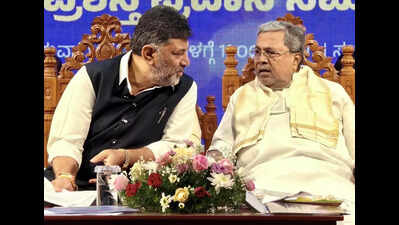Missing original caste census report throws govt’s social justice plans into disarray | Bengaluru News

Bengaluru: The mystery surrounding the disappearance of the original socio-economic and education survey report, popularly known as the caste census, prepared by the Kantharaj Commission has triggered a fierce political row, with opposition parties criticising the govt for basing crucial policy decisions on a revised report drawn from sample data.
The revised report, submitted in 2023 by Backward Classes Commission led by K Jayaprakash Hegde, was based on select data from copies of the original Kantharaj Commission survey. The move has triggered sharp reactions and cast doubts over the authenticity of the entire exercise.
Hegde set off a political storm when he told reporters: “It is true the original data compiled under the Kantharaj Commission could not be located. We had to rely on a sample-based methodology to compile the current report. It was the only viable option given the circumstances.”
The admission prompted an immediate backlash, with opposition leader R Ashoka asking how policy decisions can be based on a report that lacks the foundation of the original. “This is gross injustice to the people of Karnataka. The entire process is shrouded in mystery and lacks transparency,” he said.
The JD(S) echoed the criticism, accusing the state govt of using the revised report for political advantage. “This revised report is nothing but a political tool to appease certain vote banks. The govt must come clean on the missing original report before taking up the revised one,” the party said.
Adding to the controversy, a letter purportedly by Hegde to the govt in Nov 2023, circulating on social media, states that the sealed boxes containing the Kantharaj Commission’s survey details were opened on Aug 26, 2021, in the presence of the commission’s chairman, members, and the member secretary. While printed versions of the report were available, they lacked the member secretary’s signature, and the original blueprint was missing.
“The officer concerned was directed to submit the blueprint immediately,” the letter states. “The officer has submitted a reply stating that it is missing. Bringing this matter to the notice of the govt, I would seek how to proceed further and take action in this regard.”
Despite calls for an investigation — especially since the original survey cost the state exchequer a staggering Rs 160 crore — the govt is yet to file a formal case and initiate a probe. “Even now, no one knows where the original report is,” said an official.
Defending the revised report, home minister G Parameshwara said, “The data was compiled using a scientific approach. The commission has applied statistical techniques widely accepted in demographic studies. Sample-based surveys are legitimate when conducted correctly.”
However, sociologist Dr BN Savitha cautioned against using such data for policymaking. “Sample surveys can offer insights but cannot replace a full-scale enumeration when dealing with something as sensitive and complex as caste data,” Savitha said. “There is a risk that any caste-based restructuring based on this document may be challenged in court.”
















